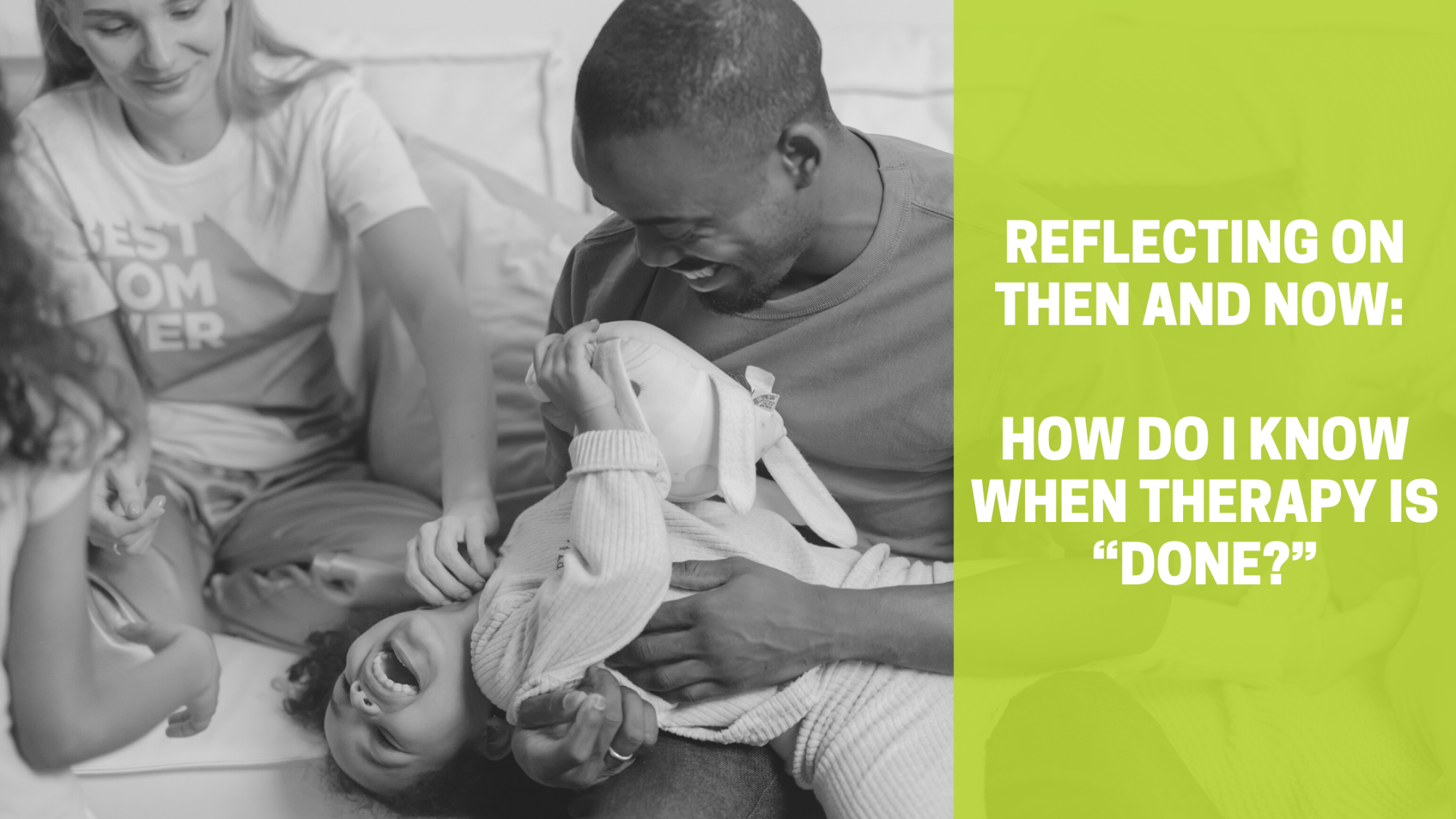At this point, you are well into your therapeutic experience. Your child and your family feel comfortable with your therapist. You are in a groove, feeling comfortable, and you may have even started to see some progress! This is so exciting and, of course, relieving! This is why you began therapy! You may begin to reflect on how difficult those first few sessions were, but through consistent hard work, those sessions were so worth it! As you start to see improvements in your child’s mood and behavior in and outside of the therapy room, you may begin to think, “how do I know when therapy is done?”
Interestingly enough, most parents ask me this question at our very first intake. I get that you do not want to be in therapy forever! My goal is to get families to a point where they no longer need therapy. Yes, I actually want my families to graduate from therapy! Some families graduate after only a few powerful sessions, while others participate in therapy for years, making this an extremely individualized process. There is no correct answer. This is a collaborative and personal decision. Once your family has made progress, I meet with parents so that we may answer this very question. No matter what stage of therapy you are in, you can recognize some telltale signs that you are done with therapy.
You can say “I know therapy is done!” with these 10 signs:
- Your child has reached a level of empowerment in and outside of their therapy sessions. You may notice your child begin to conquer their challenges, cope effectively with difficulties, gain more flexibility, or even become more relaxed and confident in their body.
- Your child is spending more time in their “window of tolerance.” Things that would have sent them into a tantrum or a meltdown before may still upset them. Still, they remain grounded and able to regulate through these tough experiences. You may notice that the size of their reactions better matches the size of the problem.
- Your child has gained confidence and engages in activities that, before, were too overwhelming. Perhaps they feel more social or take age-appropriate risks and have more “brave” moments.
- Your child is better at communicating and naming their feelings.
- Your child has adopted and utilizes coping skills. Either those learned in therapy or ones they discovered on their own.
- As a parent, you have gained insight into your parenting styles, have changed unhelpful patterns, and have embraced a more attuned way of parenting.
- You have adopted new coping skills and have found self-compassion for your parenting flaws.
- You have an external support system through family, friends, groups, church, or other community resources.
- When you review your child’s goals, you realize your child has reached them all!
- Your therapist lets you know that you and your child are ready. That you got this. And your therapist reminds you that therapy is always here, but for now, you are ready to celebrate graduating from it. Yes, now you know you are “done” with therapy!

